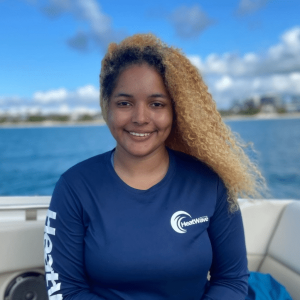Our Stony Coral Tissue Loss Disease (SCTLD) Response Team recently embarked on a crucial mission to Cat Island to assess and treat the devastating disease that is destroying our precious coral reefs. This team consisted of three members who stayed at the Greenwood Beach Resort, a partner of our Reef Rescue Network (RRN), located in Port Howe. The resort managers and PADI staff instructors, Pauline Vaz Branco and Antoine Barbier, graciously hosted and assisted our team during their stay.
The first two days of the mission were spent visiting each dive site to determine the presence and impact of SCTLD on corals. Unfortunately, our team found SCTLD present in 11 out of the 12 dive sites assessed. This alarming discovery urged our team to take immediate action to treat the diseased corals. One of the critical reef sites chosen for treatment was Greenwood’s nursery site, where staghorn corals are grown in nurseries and planted onto local reefs as part of our RRN program. The team successfully treated numerous diseased corals, including three colonies of the critically endangered pillar coral (Dendrogyra cylindrus).
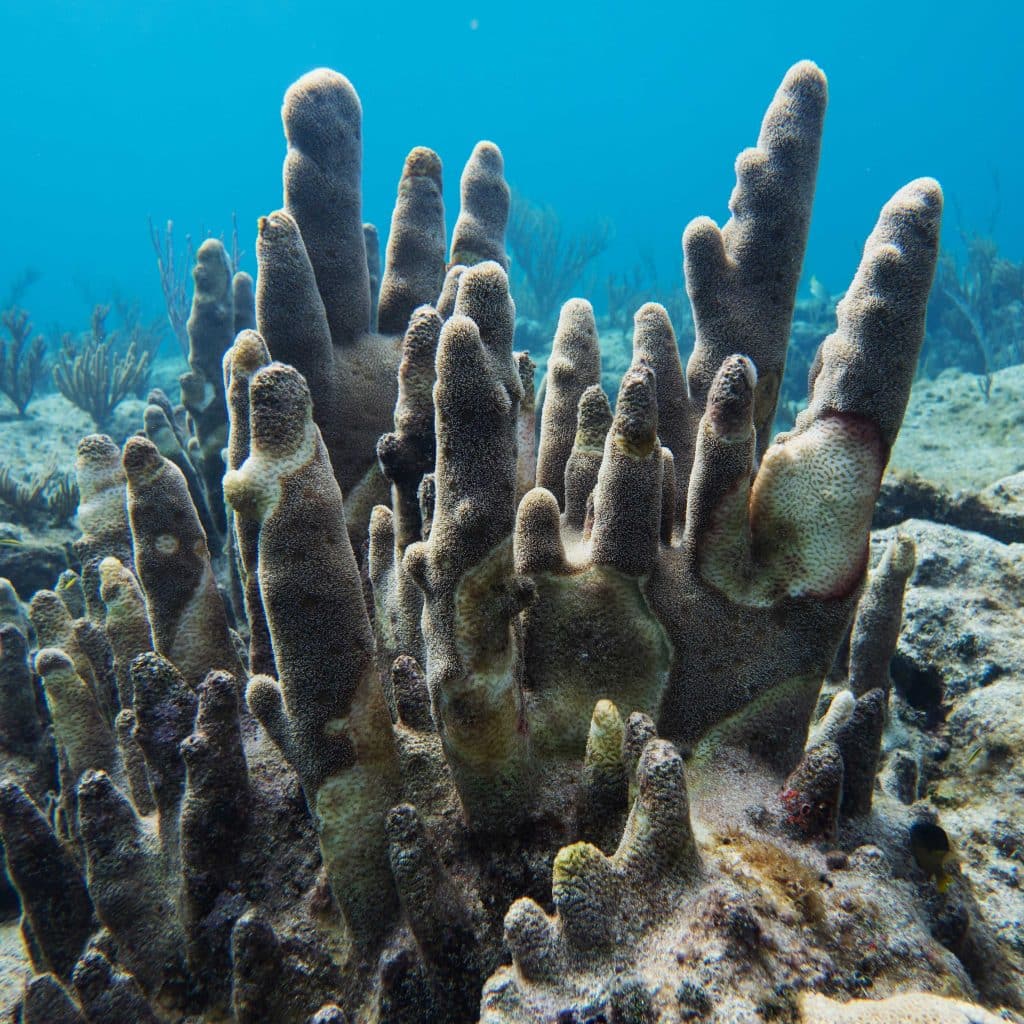
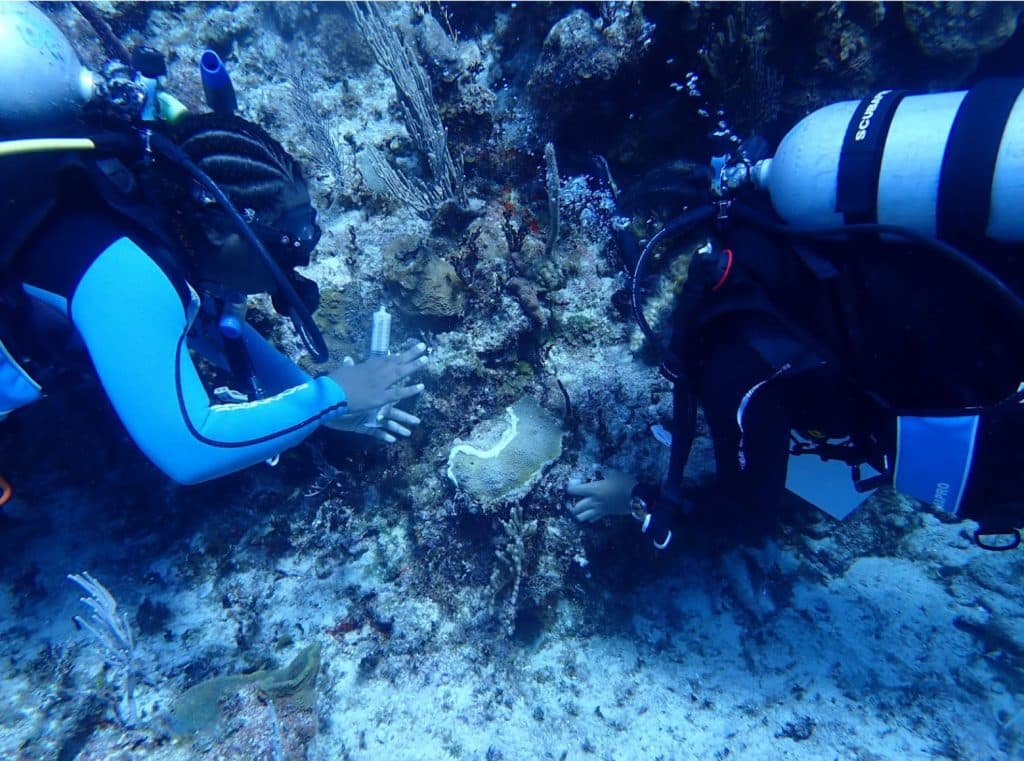
However, the mission was not without challenges. Bad weather conditions prevented the team from continuing their diving activities, prompting them to explore the numerous mangrove sites across the island instead. Mangroves are crucial coastal marine ecosystems that play an essential role in The Bahamas by maintaining fish populations and protecting the coast from erosion. Unfortunately, the team found that water circulation had been hindered in several of the mangrove locations due to coastal development, affecting the ecosystem’s overall health.
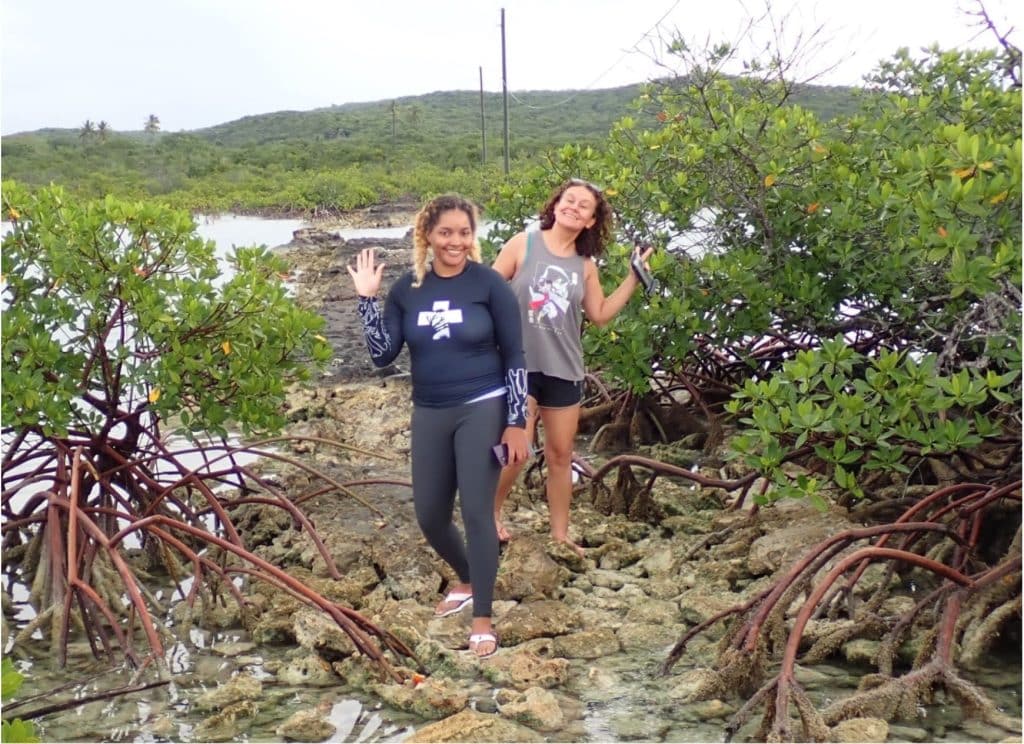
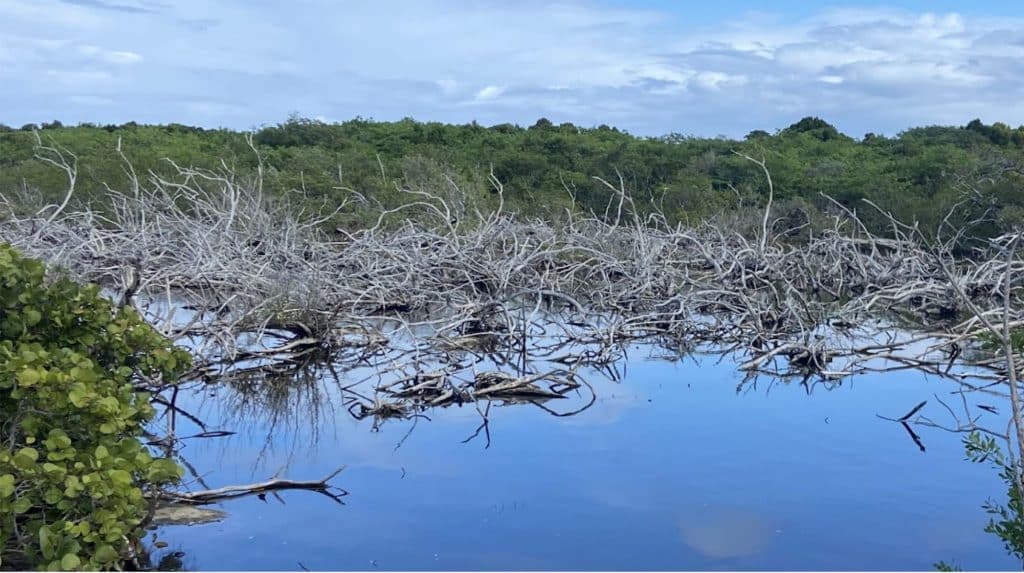
We would like to thank Greenwood Beach Resort for their incredible hospitality and genuine care that they display for the coral reefs and appreciation for the marine environment. Our team is determined to return to Cat Island in the following months to monitor the disease’s progress and continue treating diseased corals. The urgency of our mission cannot be overstated, as the fate of our coral reefs ultimately impacts our entire planet’s health and well-being. We must all take action to protect and preserve these precious ecosystems before it’s too late.


